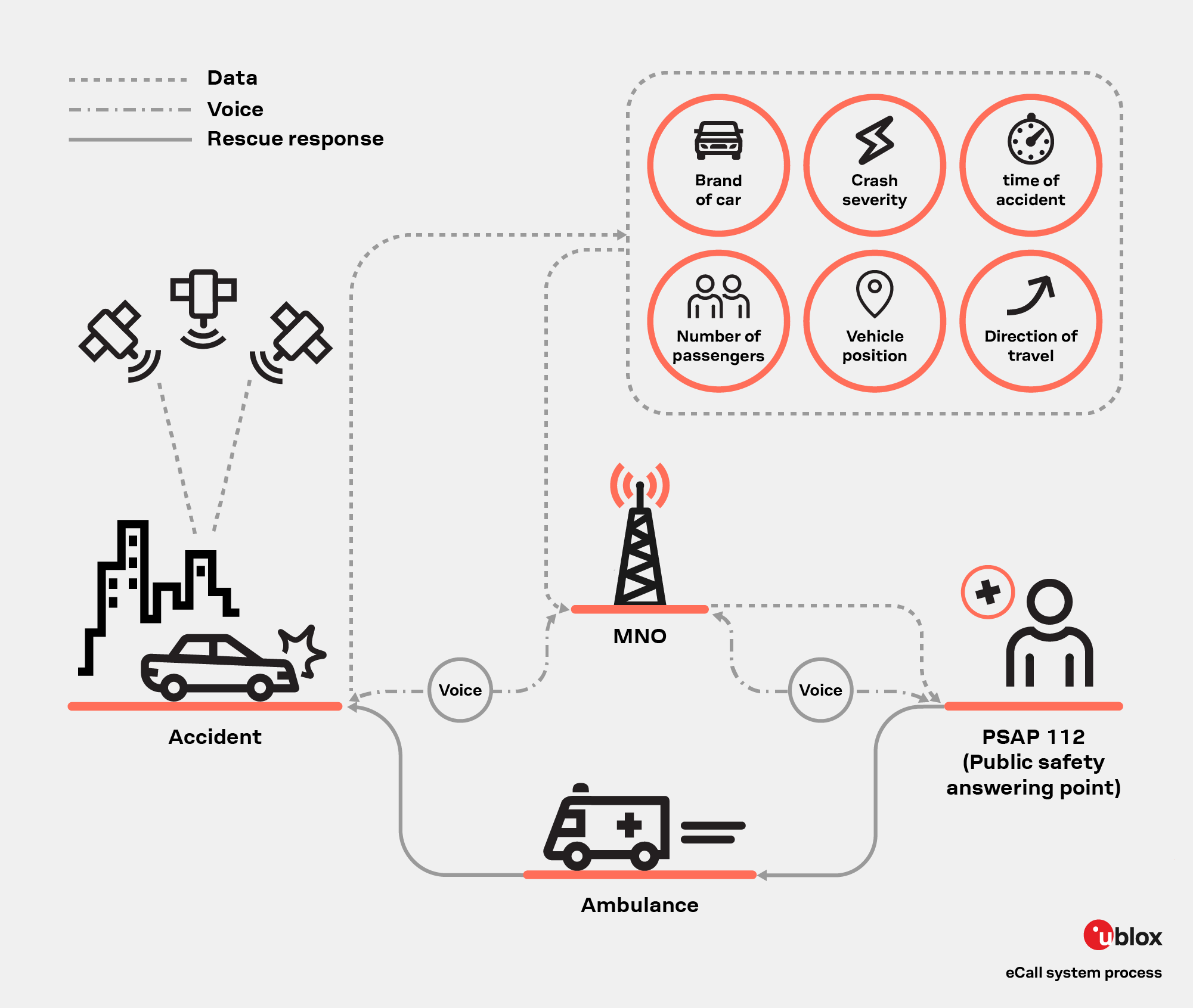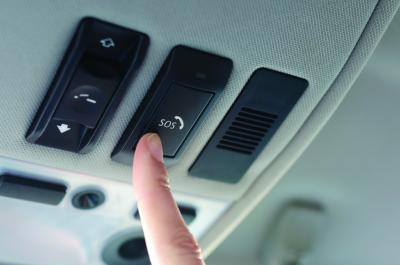
- Support portal
- Evaluation Kits and partner products
u-blox Support
- Product documentation
Documentation
- Investor relations
Investor relations
Technology
|
14 Dec 2023
Telematics-enabled emergency service revolutionizing automotive safety at your fingertips

Every year, approximately 1.3 million people worldwide die in road traffic accidents. This is why in times of crisis, every second counts.
eCall is an emergency call system designed to swiftly connect users to emergency services after a serious accident. This EU technology is a vital automotive innovation that saves lives and improves public road safety.
Short for "emergency call", eCall is a car safety telematics system that automatically calls emergency services after a road car accident.
The system uses different sensors to detect trigger events indicative of collision, such as a sudden drop in speed or airbag activation. Upon detecting a severe impact, eCall automatically places a free call to 112, delivering crucial information about the vehicle's location to the nearest public-safety answering point (PSAP).
The European Union launched eCall in the early 2000s. The aim was to introduce a universal SOS telematic embedded system in cars to automatically notify emergency services of road traffic accidents.
The idea gained momentum, leading to the establishment of the SOS eCall project in 2003.
By 2018, eCall systems became mandatory for all new vehicles manufactured or sold in the European Union, marking a significant milestone in automotive safety standards.
eCall relies on a combination of sensors, communication modules, and positioning systems to function seamlessly.
When detecting an accident, the system uses a cellular network to initiate and automated call using data and voice (e.g. GSM, UMTS), providing vital details to the nearest emergency center. These details include vehicle's location, the accident's time of occurrence, and the number of passengers.
The system utilizes the GNSS technology to determine the vehicle's precise location. The solution can give additional details about the car's brand, fuel type, and crash severity. This helps emergency workers provide optimum roadside assistance.
At the core of this telematic solution lies a commitment to improved driver safety, defined by:
Quicker emergency response - eCall significantly reduces emergency response times by automatically alerting authorities of accidents. This rapid response can be lifesaving in situations where every second counts.
Enhanced positioning accuracy - the integration of GNSS ensures accurate location data, enabling emergency services to reach the accident site precisely. This is particularly valuable in remote or unfamiliar areas.
Improved post-accident care - eCall not only alerts emergency services but also provides critical information about the accident. This helps medical responders in preparing the appropriate roadside assistance.

While eCall is a remarkable advancement in automotive safety, it's essential to also understand its limitations:
Dependence on vehicle sensors: eCall relies on the accurate functioning of in-vehicle sensors. A malfunction or failure in these sensors may compromise the system's effectiveness.
Limited to road accidents: eCall is specifically designed to respond to road accidents. It may not be activated in other emergency situations that do not involve a significant impact, such as a medical emergency inside the vehicle.
The costs of eCall can differ based on factors like system complexity, integration with vehicle infrastructure, and regulatory needs. Initially, there may be costs related to the installation of the eCall unit in vehicles.
However, these costs are often outweighed by the potential savings in emergency response resources and healthcare expenses.
As automotive technology continues to advance, the future of eCall holds exciting possibilities. The system is likely to see improvements in sensor technology, communication protocols, and integration with other vehicle safety features.
Other countries have adopted similar vehicle safety standards, indicating their potential to become a universal standard for road safety.
u-blox is a leading global provider for positioning and wireless communication technology.
In addition to our ability to deliver high-quality automotive-grade components in large volumes, we offer:
Extensive expertise in GNSS technology, ensuring the accurate and reliable positioning of vehicles, a crucial aspect of automotive eCall functionality.
Robust communication modules, known for their reliability and efficiency, guaranteeing seamless communication with emergency services.
Innovative IoT connectivity solutions, providing a solid foundation for integrating eCall with emerging technologies and future advancements in the automotive industry.
Compliance with regulatory standards ensuring safety and seamless integration with existing automotive systems.
Global presence and a commitment to excellence, delivering vehicle telematic solutions that meet the diverse needs of the automotive industry on a global scale.
eCall is a significant advancement in car safety, saving lives and reducing injuries from road accidents. u-blox's expertise in positioning and communication solutions makes it a reliable partner for any automotive business looking to build advanced eCall solutions.